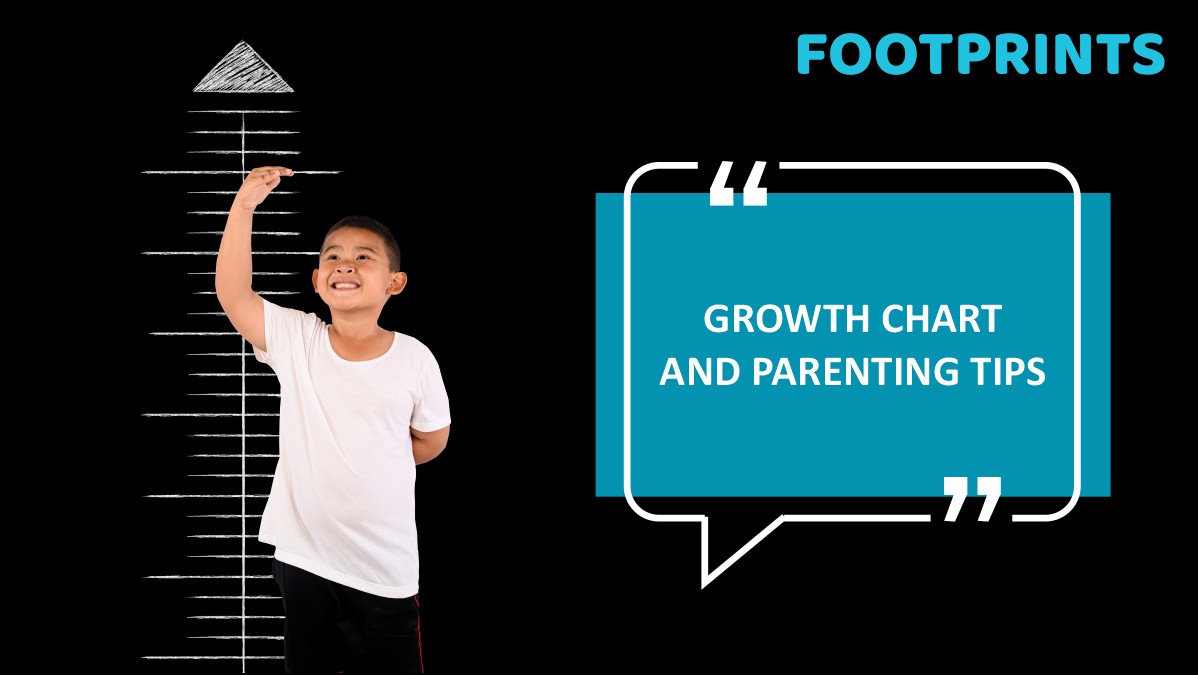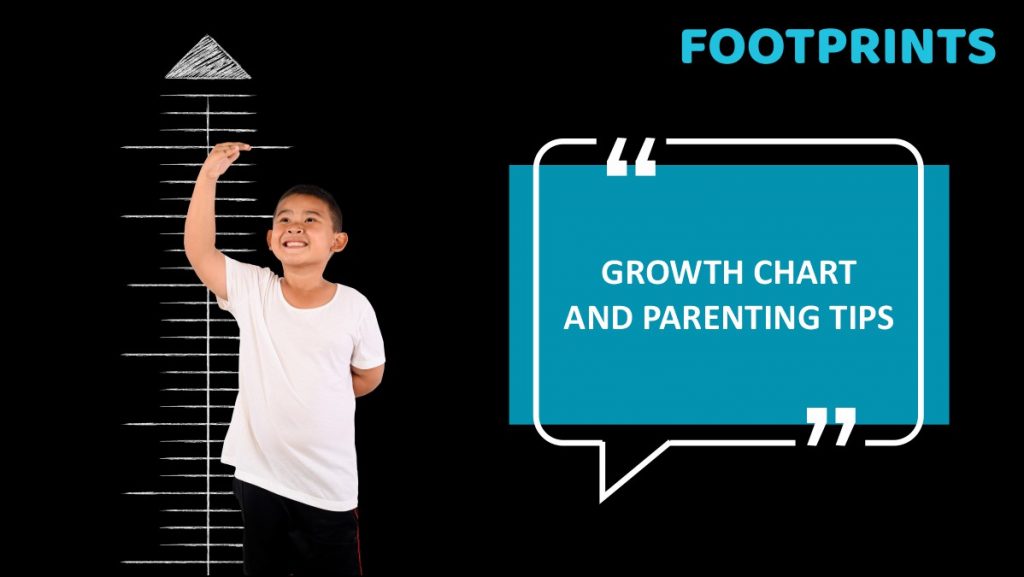

So you got your infant ready to attend his first-ever family gathering with a lot of excitement but came back mortified with people’s comments on the child looking very “ weak” or even “malnourished”? As a new parent nothing can be more triggering than to be told that the child does not look healthy. Not only do you start to question your parenting, but worse still you are really worried that there is truth in their observations and the child may actually be unhealthy.
Here is everything that you need to know about the baby’s growth to allay your fears. With this handy chart that plots the child’s weight against their height, you can check for yourself that the child is adhering to the standard norms. A word of caution here- beyond the charts, too, there are a number of aspects to watch out for that are different for each baby. While we will point out the major ones for your benefit here, if you see any signs that worry you, reach out to the child’s pediatrician without any delay.
Height and Weight Chart for Babies
Here is a standardized growth chart that reflects the normal growth patterns for the first 12 months of your child’s life
Baby Growth Chart for Boys (0 to 12 months)
| Age | Weight (kg) | Height (cm) |
| 0 | 2.5 – 4.3 | 46.3 – 53.4 |
| 1 | 3.4 – 5.7 | 51.1 – 58.4 |
| 2 | 4.4 – 7.0 | 54.7 – 62.24 |
| 3 | 5.1 – 7.9 | 57.6 – 65.3 |
| 4 | 5.6 – 8.6 | 60.0 – 67.8 |
| 5 | 6.1 – 9.2 | 61.9 – 69.9 |
| 6 | 6.4 – 9.7 | 63.6 – 71.6 |
| 7 | 6.7 – 10.2 | 65.1 – 73.2 |
| 8 | 7.0 – 10.5 | 66.5 – 74.7 |
| 9 | 7.2 – 10.9 | 67.7 – 76.2 |
| 10 | 7.5 – 11.2 | 69.0 – 77.6 |
| 11 | 7.4 – 11.5 | 70.2 – 78.9 |
| 12 | 7.8 – 11.8 | 71.3 – 80.2 |
Baby Girl Growth Chart (0 to 12 months)
| Age | Weight (kg) | Height (cm) |
| 0 | 2.4 – 4.2 | 45.6 – 52.7 |
| 1 | 3.2 – 5.4 | 50.0 – 57.4 |
| 2 | 4.0 – 6.5 | 53.2 – 60.9 |
| 3 | 4.6 – 7.4 | 55.8 – 63.8 |
| 4 | 5.1 – 8.1 | 58.0 – 66.2 |
| 5 | 5.5 – 8.7 | 59.9 – 68.2 |
| 6 | 5.8 – 9.2 | 61.5 – 70.0 |
| 7 | 6.1 – 9.6 | 62.9 – 71.6 |
| 8 | 6.3 – 10.0 | 64.3 – 73.2 |
| 9 | 6.6 – 10.4 | 65.6 – 74.7 |
| 10 | 6.8 – 10.7 | 66.8 – 76.1 |
| 11 | 7.0 – 11.0 | 68.0 – 77.5 |
| 12 | 7.1 – 11.3 | 69.2 – 78.9 |
Handy Parenting tips and aspects to watch out for
Besides the standardized growth chart, it will help you to keep an eye on the following aspects:
Pregnancy Health
Even before the child is born, a sound pregnancy goes a long way in impacting the child. Aspects such as the mother’s weight, activity levels, stress levels, and more have a strong bearing on the health of the yet-to-be-born child. It is also important to remember that for women exposed to persistent low nutritional status and high-energy expenditure, the predisposition towards bearing low-birth-weight infants is that much higher. It is, therefore, prudent to maintain good physical and mental health during pregnancy to ensure child’s health. Not only that, but even before one plans the pregnancy, it will help to look at the following aspects:
● Control diabetes and other medical conditions.
● Avoid smoking, drinking, and drug use.
● Achieve a healthy weight.
● Avoid stress
Breastfeeding
Research shows that breast milk helps with:
● Supplying all the necessary nutrients in the proper proportions.
● Breast milk has immunological and anti-inflammatory properties
● Protection against allergies, sickness, and obesity.
● Protection against diseases like diabetes and cancer.
● Protection against infections such as ear infections.
● Babies have healthier weights as they grow.
● It is easily digested.
Having the child on breastfeed, therefore gives him or her the best start for a healthy life!
Sleep Hygiene
Did you know that if babies sleep better, they grow better? Research shows that a newborn (0–3 months old) needs about 14–18 hours of sleep; an infant (4–11 months old) needs 12–15 hours, and a toddler (1–2 years old) needs 11–14 hours of sleep every day. Sleep, along with nutrition, allows a baby to go through all the physical developmental stages as well as to impact brain development, and facilitate learning, thinking, language development, and behavior formation.
Balanced Diet
An age appropriate balanced diet goes a long way in the child adhering to developmental milestones. As the child grows and begins to consume food, make sure that a balanced diet rich in minerals, proteins, vitamins and fats is offered.
Beyond the above aspects, you also need to keep in mind that each child is different. It will be prudent, therefore, not to compare the child with another and get worked up unless you are witnessing developmental delays. Some of the aspects to be mindful of that make every child unique include:
- Genetics often sets out a road map for the development of the child.
- A child’s development is also a function of the length of the pregnancy. Needless to say, a child born preterm will weigh less than a child born at full term.
- Any medical conditions that the mother suffers from could also have an impact on the child. For instance if the mother suffers from diabetes or high blood pressure, they could impact the weight of the child.
To Sum Up
While the above act as broad guidelines, please note that you need to bring any issues that you suspect to the notice of the child’s doctor. Early detection and diagnosis can make a world of difference to your child.
At Footprints Preschool, a preschool that has emerged as a parenting partner for parents across the country, our wish is for you to raise healthy, happy children!

Purvesh is a multidimensional leader at Footprints Childcare. As a TED speaker and IIT-Delhi alumnus, his passion for education is fueled by his experiences as a certified life coach and parent. He goes beyond traditional parent engagement activities, creating meaningful connections through insightful parenting workshops and open communication channels. Purvesh’s commitment to empowering parents, teachers, and students is the foundation of everything we do at Footprints. What motivates Purvesh? As a parent himself, the challenges his son faces in the educational system are the driving force for him.

